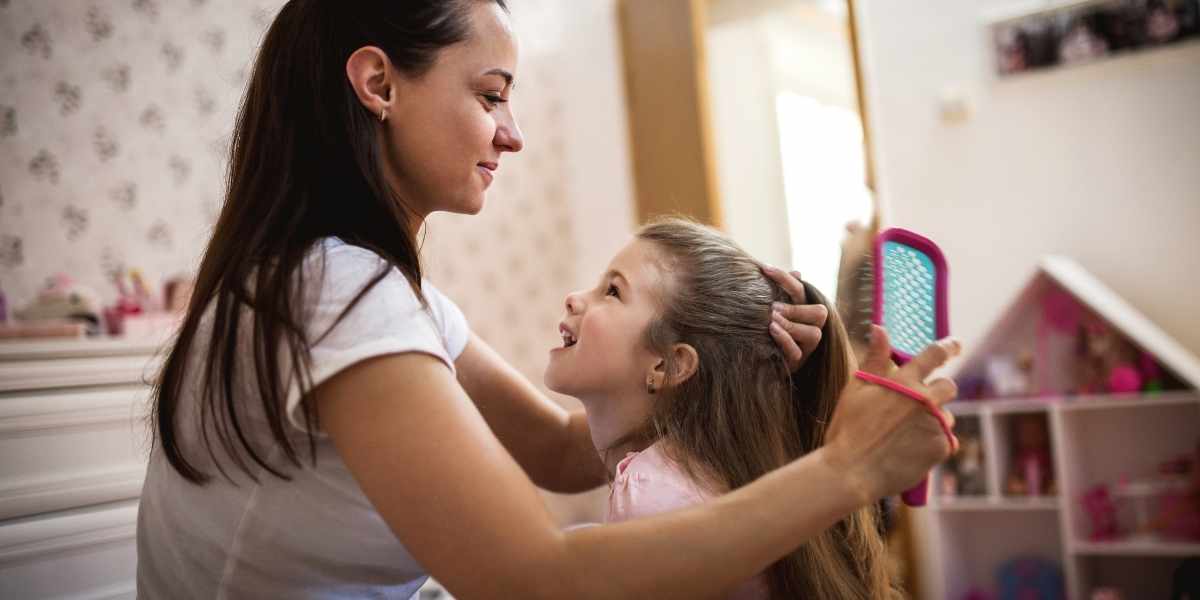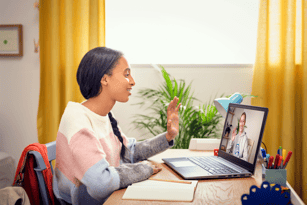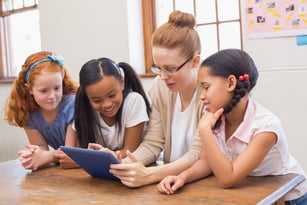Contents
- What does Triple P parenting stand for?
- What’s the idea behind Triple P?
- Does Triple P parenting work?
- How long does Triple P parenting take?
- What is Triple P protocol?
- What do you learn on a triple p parenting course?
We know the feeling: it’s been a long day, the dishes haven’t been done, you’ve got deadlines at work, the baby has thrown up on your new top, the dog wants to play, you’ve just told your eldest to get off his tablet for the 100th time and dinner is likely to be rice cakes and baked beans unless you can get to the supermarket for a healthier meal! 😧 The last thing you are going to feel is positive.
But, hold it right there! We have an idea and it might just make your life a little better, easier and more enjoyable. Don’t believe us? Allow us to introduce you to triple p!
What does Triple P parenting stand for?
Triple P parenting stands for positive parenting program. It’s all about creating strong bonds with your child, encouraging positive behaviour and being able to manage stressful situations. Sounds perfect already, doesn’t it? Its main principles are:
- Raising children that are happy and confident
- Managing challenging behaviour
- Setting routines and rules to be respected and followed by all concerned
- Looking after yourself and your needs as a parent
- Giving you the confidence you need to do the right thing
The bad news for some who might like a more structured, one size-fits-all approach, is that this parenting program doesn’t tell you how to parent. Finding one-size-fits-all with anything to do with parenting must be extremely rare, or non-existent! The good news is it gives you a vast toolbox of ideas. Every child and every problem is unique so it kind of makes a lot of sense! It’s up to you which strategies you use and how you use them. In short, it’s about taking triple p and making it work for you! 💪
What’s the idea behind Triple P?
To find out where triple p started, we have to journey back in time to the start of the noughties, when the thought of having children probably hadn’t even crossed your mind!
Back in 2001, while you were probably still out clubbing and living a blissfully care-free single life, Sanders, Turner and Markie-Dadds were developing a family intervention system for parents and caregivers that focuses on prevention as well as cure. The triple p program aimed to prevent under 12s from experiencing emotional problems such as grief and social media bullying and behavioural problems, such as pickiness at mealtimes and tantrums. It achieved this by equipping parents and caregivers with the strategies and skills they need to effectively deal with these problems.
The whole idea is that a triple p program combines social learning theory (SLT) with a public health approach.
For anyone who has no clue what SLT is, and you’re not alone. Let us clarify. According to Psychology Today, it’s pretty easy to understand:
The basis of social learning theory is simple: People learn by watching other people. We can learn from anyone – teachers, siblings, peers, co-workers, YouTube influencers, athletes, and even celebrities. We observe their behavior and mimic that behavior. In short, we do what they do. This theory is also known as social cognitive theory.
This theory was developed by Albert Bandura in the late 1970s. For more on this, have a look here.
Does Triple P parenting work?
Since it was introduced, triple p parenting has become one of the most successful evidence-based programs in the world. It’s based on over 35 years of continuous research. This research is from over 37 countries which led to 980 trials and studies and includes over 170 random trials in a controlled setting. We think that’s got to be a good thing! 😃
Triple p is a program suited to any type of family set-up - same sex families, single parent families, blended families, and so on – regardless of culture and socio-economic groups. Another tick!
But did you know that it’s the only parenting program designed to be delivered to whole communities as well? Don’t take our word for it! Look at the UNESCO Child and Family Research Centre whose evaluation of triple p parenting in Ireland delivered health benefits throughout the community.
The three-year trial took place in the counties of Longford and Westmeath. The results speak for themselves: a pre-emptive public health program supported by a positive parenting program led to a positive change, including a 37.5% reduction clinically-elevated emotional and behavioural problems.
So, all the evidence seems to suggest that triple p parenting actually works rather well.
But we know the best judges are you, the parents. Here’s what some had to say:
“At first I was reluctant to do a parenting programme. I have learned so much and the behavioural change is much greater if you stick with reinforcing the positives.” Nicky, mum of 2.
“Teen Triple P Online wasn’t judgmental, and I liked that, as well as the focus on giving praises, which as a single mom you can forget, because in many ways you’re in survival mode.” Vi, mum of 2.
How long does Triple P parenting take?
This is a bit like asking how long a piece of string is. There are now a variety of courses online and face-to-face for all different age groups including teens.
We think a better way to look at it would be that any triple p parenting program will give you the valuable tools to manage numerous challenges in a family setting in a more knowledgeable, enjoyable and successful way. Without a doubt, it will make you question your current parenting style, and your child’s behaviour. But don’t feel threatened, approach it with an open mind and it could be a win-win for everyone involved! 👍
What is Triple P protocol?
Going back to the creators of triple p parenting again will give us the best overview. Sanders, Turner and Markie-Dadds, broke the concept down into five intervention levels which increase in intensity and become more focussed on a specific problem. Let’s have a look at those levels:
|
Level |
Name |
Content |
|
Level 1 |
Universal Triple P media-based parenting information campaign |
General information looking at parenting programmes, how a child develops and skills parents and caregivers need. |
|
Level 2 |
Selected Triple P information and advice for a specific parenting concern |
Advice for parents and caregivers who are worried about a small problem linked to their child’s behaviour. |
|
Level 3 |
Primary care Triple P narrow focus parenting skills training |
Four sessions in an individual format for parents and caregivers who want to concentrate on two specific areas of concern related to their child’s behaviour. |
|
Level 4 |
Standard Triple P group, Triple P self-directed, Triple P broad-focus parenting skills training |
Twelve sessions in an individual or group format for parents and caregivers needing specific intensive training to help manage several problems related to their child’s behaviour. |
|
Level 5 |
Enhanced Triple P behavioural family intervention |
Eleven sessions in an individual format for family groups who are needing support to manage more extreme problems with their child’s behaviour. |
What do you learn on a triple p parenting course?
There are many different triple p courses to choose from so it’s best to search for one online or ask around locally to find one that would suit your family’s particular requirements. Here are some examples of the content of different group courses and presentations: 📂
|
Course |
Length |
Level |
Course/Presentation content |
|
Selected triple P (example given is for children up to 12 years old) |
Information presentation (3 x 60-minute plus 30-minute Q&A) for 20-200 people to understand Triple P strategies |
2 |
|
|
Primary care triple P |
3-4 sessions over a period of 4-6 weeks one-to-one with parents |
3 |
|
|
Triple P – children up to 12 years old |
5 x 2-hour group sessions and 3 x individual telephone consultations |
4 |
|
|
Teen triple P – 12-16 years old |
5 x 2-hour group sessions of up to 12 parents and 3 x individual telephone consultations |
4 |
|
|
Stepping stones triple P – children with a disability (e.g. intellectual disability, autism spectrum disorders, cerebral palsy) |
6 x 2.5 hours and 3 x individual telephone consultations |
4 |
|
|
Special focus triple P (example given is for children aged 5-10 and their parents who are overweight or obese) |
10 x 90-minute group sessions and four telephone support calls |
5 |
|
This is just an example of the kinds of content triple p parenting covers and there are many more. If you’re lucky enough to live in Barking and Dagenham, Rotherham or Ealing, they have their own web pages dedicated to triple p parenting. Just click here and select the region you want. If this isn’t your area just search for ‘triple p parenting course near me’ online.
Alternatively, if a triple p parenting online course would suit you better, look here. You might find a triple p parenting program free online, but it’s probably better to pay for an accredited course.
We know there are always going to be challenging situations when it comes to bringing up children. It’s the only job you do that you don’t actually get trained for. If you think Triple P is the training you need to help improve family life, why not give it a go? There’s nothing to lose after all.









